Sierra Tucson offers effective, comprehensive treatment for individuals struggling with addiction and mental health concerns. Learn more about the signs and symptoms of high THC marijuana abuse.
Understanding High THC Marijuana Abuse
Learn about high THC marijuana abuse
All too often, people are warned of the dangers of abusing marijuana that may be laced or mixed with other substances of abuse. However, in recent years, the dangers of abusing marijuana that has been enhanced to make its chemical properties more potent is making headlines and causing more people to grapple with substance abuse issues. Higher levels of tetrahydrocannabinol, which is better known as THC, is the active ingredient in marijuana and is what’s making this drug even more hazardous to abuse. In its natural state, THC is what causes users to experience feelings of relaxation and detachment from surroundings, which are both effects that make marijuana an appealing substance to abuse. But, now that cultivators of marijuana are increasing the amount of THC typically found within this drug, the high experienced by those who abuse marijuana is far more intense.
When high THC marijuana is ingested, whether by smoking it, inhaling it, drinking it in a tea, or eating it mixed with food, a person can experience a profound high that can eventually alter one’s brain chemistry. And because an individual can develop a tolerance to this drug, more and more of this substance is needed to bring about the sought-after effects. Over time, the unfortunate consequence of this sort of behavior is a powerful addiction that can be challenging to overcome without the assistance and support of professionals. Fortunately, effective services are available and can be life-changing for someone battling an addiction to high THC marijuana.
Statistics
High THC marijuana abuse statistics
According to the National Institute on Drug Abuse, or NIDA, the amount of THC found in today’s marijuana is increasing. With this increase, more and more people are becoming addicted to marijuana and experiencing adverse effects as a result. In recent years, the number of emergency rooms visits by individuals who need care after abusing high THC marijuana is also rising, which speaks to the dangers associated with consuming marijuana with higher levels of THC. Lastly, per a recent study, the percentage of THC found in today’s marijuana has increased to nearly 40%, which is up from between 4% and 13% in decades past.
Causes and Risk Factors
Causes and risk factors for high THC marijuana abuse
Researchers have spent a great deal of time trying to understand why some people struggle with the abuse of drugs like high THC marijuana while others don’t. The following concepts are what were unveiled by this research, and may explain why you are grappling with this sort of substance abuse problem:
Genetic: While not the reason why someone chooses to abuse a drug like high THC marijuana in the first place, one’s genetics can have a powerful impact on whether or not someone will become a regular abuser of this kind of drug. For example, if a person has a family history of substance abuse and addiction, the possibility of also struggling with similar challenges is greater. Therefore, when trying to understand why you’ve developed a problem with high THC marijuana, you may want to consider your own family history of drug use.
Environmental: The potential for abusing strains of marijuana that have a higher concentration of THC can be influenced by certain environmental factors in addition to genetic factors. For example, if a person is younger, is able to easily acquire this drug, and if the individual associates with peers who are users of this substance, it’s possible that abuse of high THC marijuana may be more likely to happen. Furthermore, when someone has a personal history of exposure to trauma, crime, chaos, and other similar circumstances, the risk for abusing this drug is higher when proper support and healthy coping strategies are lacking.
Risk Factors:
- Being of younger age
- Early experimentation with drugs
- Family history of mental illness
- Family history of substance abuse and/or addiction
- Having a personal history of chronic stress or trauma
- Having easy access to high THC marijuana
- Personal history of mental illness
Signs and Symptoms
Signs and symptoms of high THC marijuana abuse
Some signs of high THC marijuana abuse are obvious, while others are not as apparent and observable by others. However, the following behavioral, physical, cognitive, and psychosocial symptoms suggest that someone, perhaps even you or someone you care about, is abusing this dangerous substance:
Behavioral symptoms:
- Acting in an uncharacteristic manner
- Being in possession of drug paraphernalia
- Decline in performance at work
- No longer participating in things that were enjoyable because one favors abusing high THC marijuana
- Spending time getting, using, and recovering from high THC marijuana
- Stealing money to buy high THC marijuana
- Trying but failing to stop the abuse of high THC marijuana
- Unexplained absences from work
- Using high THC marijuana when its unsafe to do so
Physical symptoms:
- Bloodshot eyes
- Decreased energy
- Dry mouth
- Impaired motor coordination
- Increased appetite
- Problems with coordination
Cognitive symptoms:
- Experiencing the sensation of time slowing down
- Impaired judgment
- Memory problems
- Perceptual disturbances
- Poor decision-making
Psychosocial symptoms:
- Agitation
- Anxiety
- Euphoria
- Irritability
- Oscillating moods
- Social withdrawal
Effects
Effects of high THC marijuana abuse
Abusing high THC marijuana is not without its consequences. When this drug is abused, especially in increased amounts over a long period of time, there are numerous life-altering effects that can happen. However, when you access services to overcome this sort of substance abuse problem, you can avoid the following and change your life for the better:
- Cognitive deficits
- Conflict within and/or demise of relationships
- Decreased sex drive
- Injury while under the influence of high THC marijuana
- Job loss
- Legal problems, including arrest and incarceration
- Onset of mental health concerns
- Polysubstance abuse
- Poor work performance
- Respiratory problems
- Worsening of already-existing mental illnesses
Co-Occurring Disorders
High THC marijuana abuse and co-occurring disorders
Sometimes the abuse of high THC marijuana can trigger the onset of otherwise dormant mental health concerns. Furthermore, the abuse of this drug can make active mental illnesses more severe. Therefore, if treatment is received to overcome a high THC marijuana abuse problem, it’s possible that care may be needed to treat one or more of the following co-occurring disorders simultaneously:
- Alcohol use disorder
- Antisocial personality disorder
- Anxiety disorders
- Attention-deficit/hyperactivity disorder
- Bipolar disorder
- Major depressive disorder
- Obsessive-compulsive personality disorder
- Paranoid personality disorder
- Schizophrenia
- Stimulant use disorder
Withdrawal and Overdose
Effects of high THC marijuana withdrawal and overdose
When no longer under the influence of marijuana that has higher than normal amounts of THC, a person is likely to experience unpleasant effects as a result. These effects are actually symptoms of withdrawal that signify that one’s body is trying to adjust to functioning without having this substance present.
If any of the following telltale signs of withdrawal happen to you, it’s a good idea to consider seeking treatment to defeat this sort of substance abuse problem:
- Abdominal pain
- Aggression
- Anger
- Anxiety
- Chills
- Decreased appetite
- Depressed mood
- Feeling dizzy
- Fever
- Headache
- Nervousness
- Poor focus
- Powerful cravings for more high THC marijuana
- Problems falling and/or staying asleep
- Profound irritability
- Profuse sweating
- Restlessness
- Sexual dysfunction
- Shakiness












